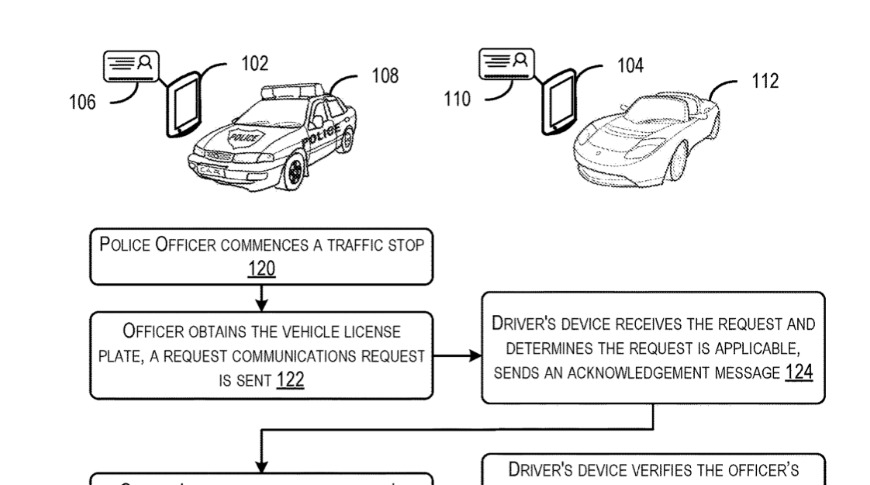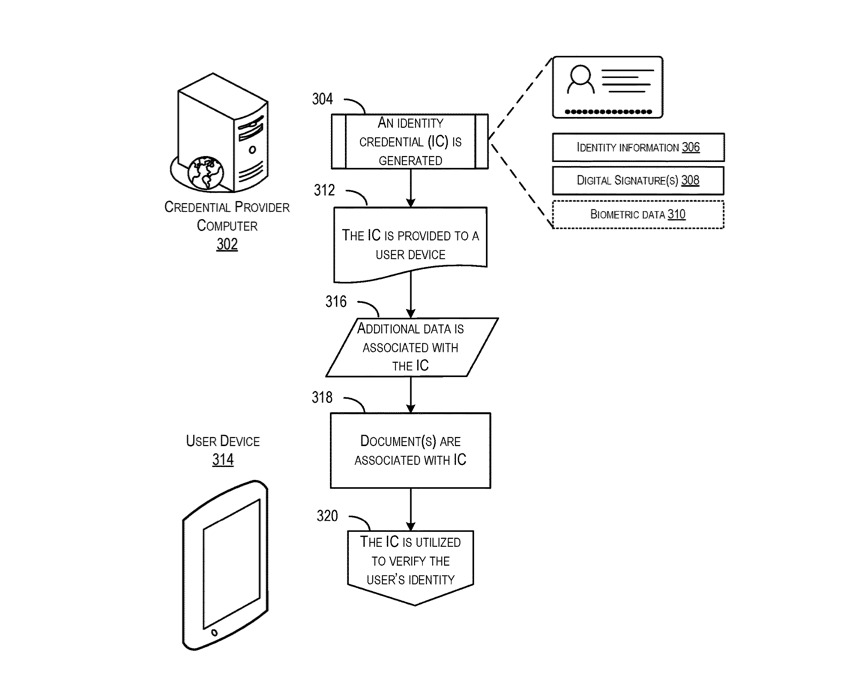Apple working on ways to securely present government ID from an iPhone or Apple Car
Detail from Apple's patent applications showing how a digital ID could be provided to law enforcement

New research from Apple details methods that iPhone or Apple Car owners could securely store their identity credentials and securely share them with governmental agencies when required.
Two new Apple patents together document methods for effectively replacing paper driving licenses or passports with a digital equivalent. The system would allow for many other situations where an identity must be confirmed, but the patents are concerned with the secure creation, storage and then — significantly — transmission to agencies such as law enforcement.
US Patent applications numbered 20190325125 and 20190327228, both titled "Identity Credential Verification Techniques," follow previous reports of Apple hoping to make iPhones central to ID security.
The two new patent applications separate out the functions of such systems into the creation or collection of a user's identity details, the later authentication of that ID, and then the user's ability to provide this detail on request.
"In today's electronically driven world, securely maintaining sensitive personal information about a user has become an important aspiration across various different industries," note both patent applications. "Having sound security procedures that collect only what information is necessary and securely communicating the information is paramount to maintaining a person's privacy rights as well as guarding against misuse of a person's personal information."
"[These patents regard], among other things, improving data security with respect to data collection, verification, and authentication techniques associated with obtaining and transmitting identity information," it continues.
The creation of an identity, it says, could be done by a government agency such as the US Department of Motor Vehicles.
"By way of example, the DMV may provision a credential that includes a person's driver's license information," it says. "In some embodiments, the credential may be digitally signed by using a private key of the DMV such that the identity credential may be verified using a public key associated with the DMV."
"Once provisioned," it continues, "a user may receive the identity credential electronically (e.g., via an application operating on the user's device). Subsequently, when the user desires to provide some portion of their identity information, the identity credential may be utilized to provide the information to another user device."
Apple's examples of providing that information include details of how law enforcement could request it at, for instance, traffic stops.
Using the driver's vehicle license plate, the officer's iPhone could request the driver's ID. Then the driver's iPhone could acknowledge the request but ask for, basically, the officer's own ID. If the driver accepts the officer's credentials, he or she could then respond via their iPhone.
"Driver's device [then] transmits at least a portion of the driver's identity credentials," notes Apple.
Already Germany and, separately, Japan have discussed plans to use iPhones to replace physical ID cards and passports. Similarly, the UK has been looking at the potential use of an iPhone app to identify EU citizens who have applied to continue living in the country after Brexit.
Recently, Apple Pay vice president Jennifer Bailey referred to how Apple sees mobile devices being used to verify identity.
"Identity, to be legal, it has to be government, it has to be authenticated by the government," she said. "We see, across the globe, many countries starting to use mobile to add a passport. You may use a mobile passport when you're going through airports today, and so it is moving and I think it will continue."
 William Gallagher
William Gallagher











 Charles Martin
Charles Martin
 Malcolm Owen
Malcolm Owen
 William Gallagher and Mike Wuerthele
William Gallagher and Mike Wuerthele
 Christine McKee
Christine McKee


 Marko Zivkovic
Marko Zivkovic








